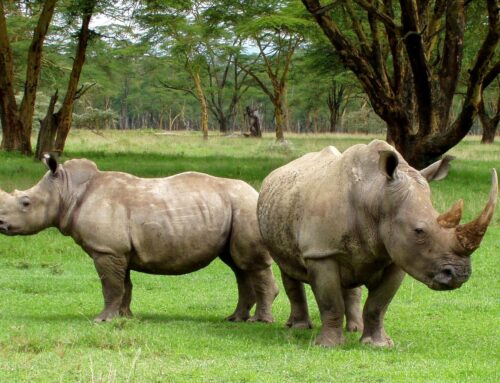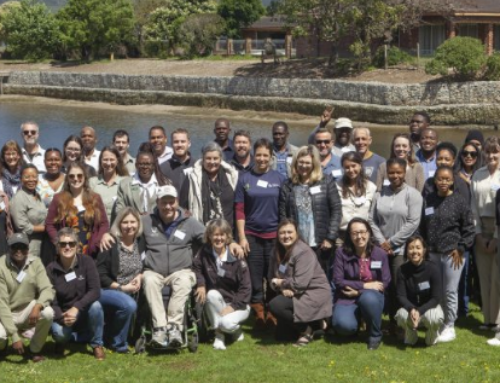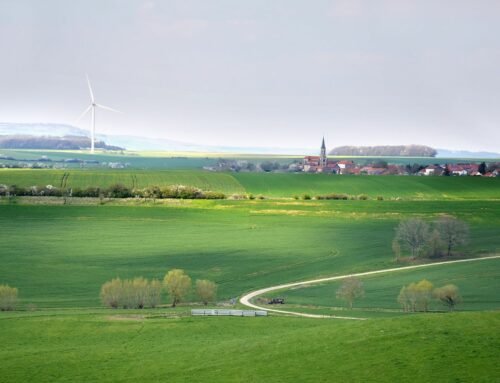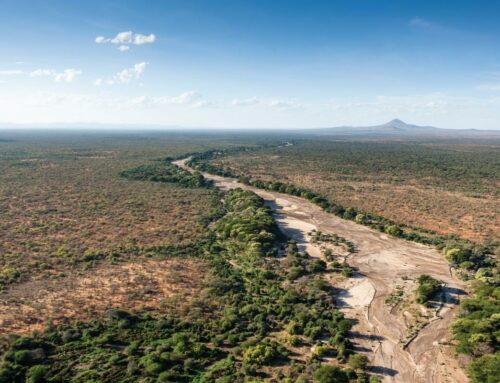Leuphana University Lüneburg (foundation under public law), Faculty of Sustainability invites expressions of interest for 8 new PhD positions within a new, trans-disciplinary project funded by the State of Lower Saxony and Volkswagen Foundation entitled:
Leverage Points for Sustainability Transformation:
Institutions, People and Knowledge
About the project
Understanding how changes in interconnected social-ecological systems facilitate the transformation to sustainability represents one of the key challenges of sustainability science. Drawing on insights from systems thinking and solution-oriented transdisciplinary research, this project will focus on hitherto under-recognized leverage points – system properties where a small shift can lead to fundamental changes in the system as a whole. Leverage Points will focus on changes in relatively intractable, but potentially highly influential, system properties that could help to realign complex social-ecological systems to the normative goals of sustainability. Specifically, we will analyse three sustainability-relevant leverage points:
1) institutional dynamics (RESTRUCTURE);
2) human-environment interactions (RECONNECT); and
3) sustainability-related knowledge creation and use (RETHINK).
The three leverage points will be studied individually and with regard to their interdependencies, on two key themes (food and energy) in two contrasting case study regions (Transylvania in Romania, and Lower Saxony in Germany.
All eight positions will be as PhD Researcher– Wissenschaftliche/r Mitarbeiter/in, salary group E 13 TV-L (50%). Starting ideally October 2015, for a duration of up to 3 years. Successful applicants will be expected to work closely with the research consortium, including seven other PhD students, eight Principal Investigators, and four postdoctoral researchers.
About the positions
PhD1: Institutional dynamics in sustainability transformation (RESTRUCTURE: Policy and Governance)
This position focuses on processes of institutional change for restructuring food and energy systems. RESTRUCTURE will address dynamics (transformations) in institutional arrangements. Social structures embodied in institutions (rules, regulations and policies) enable, constrain and guide human action and thus are of central concern to sustainability transformations. Different from most existing research, Leverage Points will not only consider institutional innovation and ‘successful’ institutional arrangements, but will specifically investigate what can be learnt from institutional failure, and assess how purposeful institutional decline could foster sustainability.
PhD2: Institutional dynamics in sustainability transformation, e.g. with special focus on energy or food/agriculture systems (RESTRUCTURE: Law and Governance)
This position focuses on legal and policy analysis regarding food/agriculture and energy, and its dynamics in a multi-level institutional setting (case study regions, countries, EU). Tasks may include: systematic review and meta-analysis of productive functions of institutional failure and decline for sustainability transformation; study of institutional redundancies and inconsistencies within study regions; compare sustainability-relevant institutional change; study of the role of citizen and stakeholder participation in institutional change, i.e. regional resistance against renewable energy and citizen’s financial participation.
PhD3: Human-Nature Connections and Institutional Dynamics
This position has a primary focus on conceptualising and quantifying human-nature connections and how changes in such connections relate to sustainability outcomes, in food and energy systems in Lower Saxony (DE) and Transylvania (RO). In addition, the position links to considerations of institutional change for restructuring food and energy systems and will address dynamics (transformations) in institutional arrangements. Social structures embodied in institutions (rules, regulations and policies) enable, constrain and guide human action and thus are of central concern to sustainability transformations. This position will consider how institutions reflect connections, and the implications for guiding human action.
PhD4: Conceptualising and quantifying human-nature connections (conceptualization)
This position focuses on conceptualising human-nature connections and how changes in such connections relate to sustainability outcomes, in food and energy systems in Lower Saxony (DE) and Transylvania (RO). This will involve the conceptualisation and quantification of actors’ aspirations and appreciation of local ecosystems; consumer choices in obtaining energy and food; and how behaviour, attitudes and knowledge influence individuals ‘connectedness’ to their environments.
PhD5: Conceptualising and quantifying human-nature connections (quantification)
This position focuses on quantifying human-nature connections and how changes in such connections relate to sustainability outcomes, in food and energy systems in Lower Saxony (DE) and Transylvania (RO).Tasks and responsibilities may include: the creation of a literature review of the connections between people and ecosystems and quantifying ecosystem service flows within the empirical study regions.
PhD6: Sustainability-related knowledge creation and use (opportunities for change)
This position focuses on consolidating and further developing conceptual foundations related to new forms of knowledge production and use, and will apply these to local transdisciplinary case studies. The themes of the case studies will revolve around the food and energy systems in Lower Saxony (DE) and Transylvania (RO). Tasks and responsibilities may include: Systematic review of the (types of) knowledge needed for regional sustainability transformations; review of existing knowledge and experiences related to designs and opportunities of different forms of knowledge production to foster sustainability transformation; empirical analysis in how and how far knowledge and experience gained in specific contexts can be transferred between regions and themes and contribution to the organization and management of one of the transdisciplinary case studies.
PhD7: Sustainability-related knowledge creation and use (sustainability conceptualization and opportunities for change)
This position focuses on consolidating conceptual foundations related to new forms of knowledge production and use, and will apply and investigate these in local transdisciplinary case studies. The themes of the case studies will revolve around the food and energy systems in Lower Saxony (DE) and Transylvania (RO). Tasks and responsibilities may include: Reviewing the state of sustainability related knowledge production and use in the study regions; analysis of sustainability conceptualisations in different contexts in the specific case study regions; identification and design of opportunities for creating new forms of knowledge production and use for regional change; and contribution to the organization and management of a transdisciplinary case study.
PhD 8: Inter- and transdisciplinary Knowledge Creation in Action
This position will analyse the processes of knowledge production in the inter- and transdisciplinary research processes in Leverage Points. It will generate a more profound understanding of integrating different epistemics, life worlds and objectives, in particular in transdisciplinary sustainability science, and transdisciplinary case studies. The cooperative team of Leverage Points and the two transdisciplinary cases studies in Lower Saxony/Germany and Transylvania/Romania will serve as principal research space.
More details on each of the 8 positions can be found at www.leveragepoints.org/jobs/
To apply
The official advertisement for these positions will be made available via the Leuphana University webpage in the coming weeks. If you are interested in applying for one or more of these positions please send an email expressing your interest and including the position you intend to apply for (e.g. “LeveragePointsPhD1”) in the subject header to abson@leuphana.de. In due course we will then provide further details regarding the official application process. For the official application process you will be asked to address all the selection criteria (details available from www.leveragepoints.org/jobs/) under clearly labelled headings in up to one short paragraph for each, provide a motivation letter stating why you are interested in the position, a CV (including publications), copies of relevant certificates and transcripts, and the names of up to three academic referees.
The anticipated deadline for official applications is 30th June, 2015, with the positions stating ideally at the beginning of October 2015. For more information on the Leverage Points project, please visit www.Leveragepoints.org












